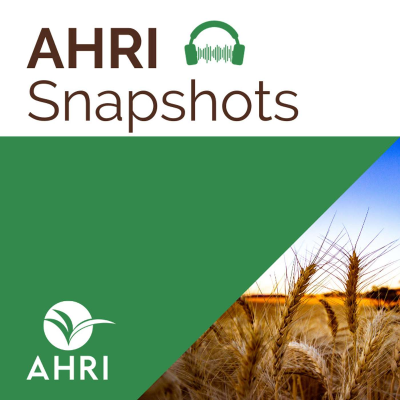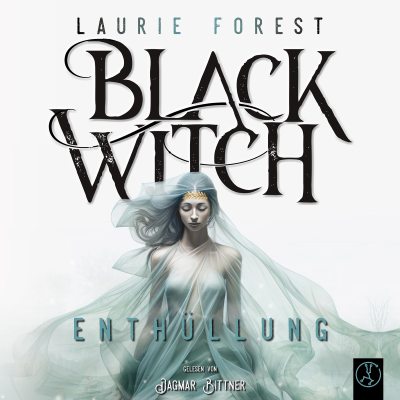
AHRI Snapshots
Englisch
Gratis en Podimo
Kostenlos hören bei Podimo
Starte jetzt und verbinde dich mit deinen Lieblingspodcaster*innen
- Vertraut von über 1 Mio. deutschen Hörer*innen
- Über 1.000 lokale Podcasts und Shows – nur bei Podimo
- Keine Zahlung nötig
Mehr AHRI Snapshots
AHRI Snapshots is a podcast that provides information on what we do at the Australian Herbicide Resistance Initiative, as well as finding out what other researchers in weed science are up to around the country and the world. AHRI's researchers work out of the University of Western Australia, right next to the beautiful Swan River in WA's capital, Perth.
Alle Folgen
137 FolgenDr Juan Vorster talks about herbicide resistance challenges in South Africa
In this episode of AHRI Snapshots, we catch up with an international guest. Dr Juan Vorster is an Associate Professor in Plant and Soil Sciences from the University of Pretoria, South Africa. Juan is studying herbicide resistance mechanisms in weeds and the development of effective management strategies for these weeds. He’s currently in Perth for a conference, so it’s a great opportunity to have a chat and learn more about his research. To learn more about Juan's research, visit the University of Pretoria's website. [https://www.up.ac.za/plant-and-soil-sciences/article/2736103/dr-juan-vorster-] You can follow AHRI on Twitter here [https://twitter.com/AHRI_Team]. To learn more about AHRI's research and team, check out the website here [https://ahri.uwa.edu.au/].
Hot spot on goosegrass genome is a herbicide resistance generator
In this AHRI Snapshots, we catch up with Principal Research fellow, Dr Qin Yu about her latest paper on glyphosate resistance in goosegrass. This paper was published in Nature Communications in August 2023, which is an impressive achievement. This paper is complicated, but essentially the researchers have found a hot spot on the genome of goosegrass that is a herbicide resistance generator. In this research, the team found that in glyphosate-resistant goosegrass the EPSPS gene was translocated to the sub-telomer region and duplicated many times there, leading to glyphosate resistance occurring. This work is useful not only in resistance gene discovery, but also in the development of gene-based next generation herbicides, like RNAi, as well as genetic reversal of resistance. It will also contribute to studying the weediness and adaptation of this global weed species. Paper: ‘Subtelomeric 5-enolpyruvylshikimate-3-phosphate synthase copy number variation confers glyphosate resistance in Eleusine indica’ [https://www.nature.com/articles/s41467-023-40407-6] You can follow AHRI on Twitter here [https://twitter.com/AHRI_Team]. To learn more about AHRI's research and team, check out the website here [https://ahri.uwa.edu.au/].
Hybrid versus open-pollinated canola
Over the last few years, the AHRI agronomy team has done extensive work looking at crop competition in hybrid and open-pollinated canola. Project lead, Dr Mike Ashworth, joins us on this podcast to discuss the findings on ideal seeding rate, variety, row spacing and seed size. Herbicides are currently working quite well in canola. We know that herbicide resistance is a real threat though, so we discuss what the current trends are in herbicide use in canola crops and what growers need to do to mitigate herbicide resistance. You can follow AHRI on Twitter here [https://twitter.com/AHRI_Team]. To learn more about AHRI's research and team, check out the website here [https://ahri.uwa.edu.au/].
What do we do with weed genomes?
In this episode, we catch up with visiting Associate Professor Todd Gaines. Todd is from Colorado State University and is currently working from UWA with AHRI. In September, he’ll be at the International Plant and Animal Genome Australia conference in Perth city, where he’s organising a two-hour session of invited talks. Todd is also organising a subsequent workshop at UWA on September 22nd, which will have the theme “We have weed genomes, but what do we do now?” While herbicides are the most effective and widely adopted weed management practice, the evolution of multiple herbicide resistance in damaging weed species threatens the yield and profitability of many crops. Todd is an expert in how genomics and molecular biology can contribute to improving weed management. He’ll explain what the focus will be at these upcoming events in this chat. You can follow AHRI on Twitter here [https://twitter.com/AHRI_Team]. To learn more about AHRI's research and team, check out the website here [https://ahri.uwa.edu.au/].
Deep learning can tell the difference between white and blue lupins
Blue lupins are notorious for being difficult to control and plants produce prolific seed banks. Blue lupins are closely related to the domesticated narrow-leaf lupin, also known as the white lupin, so whichever herbicide is survived by white lupins is also survived by blue lupins. This is problematic as they look alike. This is where a team of researchers from AHRI and the Centre for Applied Bioinformatics at the University of Western Australia, led by UWA PhD candidate and Forrest Research Scholar, Monica Danilevicz comes in. The team has recently taken the approach of using weed labelling and deep learning algorithms to see if they can distinguish between the two lupin species in images captured by unmanned aerial vehicles, known as UAVs, like drones, or ground-based cameras. The aim is to detect and spray just the blue lupins in crop. Monica explains the results further in this chat. Links * Paper: Segmentation of Sandplain Lupin Weeds from Morphologically Similar Narrow-Leafed Lupins in the Field [https://www.mdpi.com/2072-4292/15/7/1817] * Code repository [https://github.com/mdanilevicz/WeedDetectionML] * Image repository [https://figshare.com/articles/dataset/Segmentation_of_sandplain_lupin_weeds_from_morphologically_similar_narrow-leafed_lupins_in_the_field/21746669/1] * Centre for Applied Bioinformatics [https://www.uwa.edu.au/research/centre-for-applied-bioinformatics] * Follow Monica on Twitter here [https://twitter.com/MDanilevicz] * Github [https://github.com/mdanilevicz] * You can also read more about the research in the AHRI insight here [https://www.ahri.uwa.edu.au/i-got-the-blues-so-bad/] You can follow AHRI on Twitter here [https://twitter.com/AHRI_Team]. To learn more about AHRI's research and team, check out the website here [https://ahri.uwa.edu.au/].















































